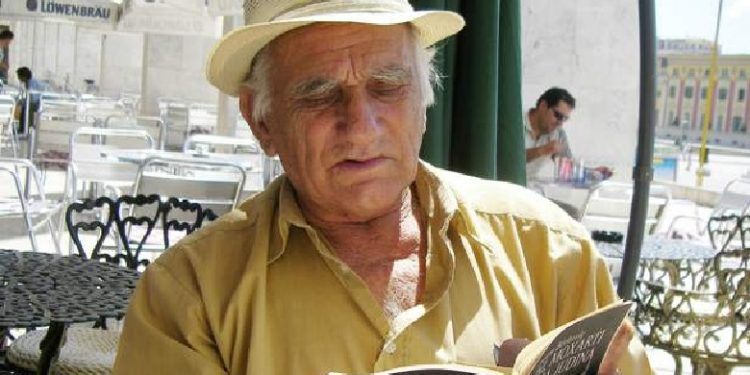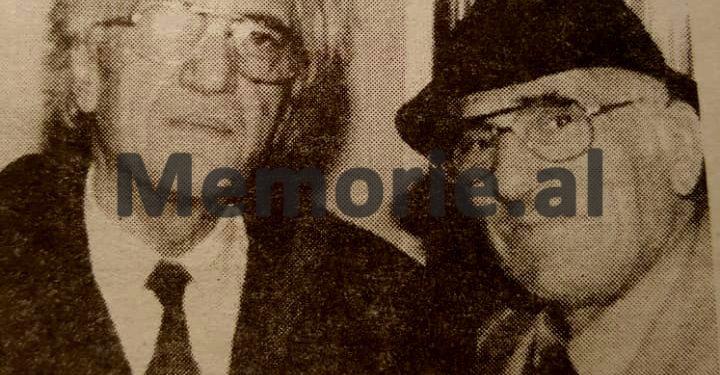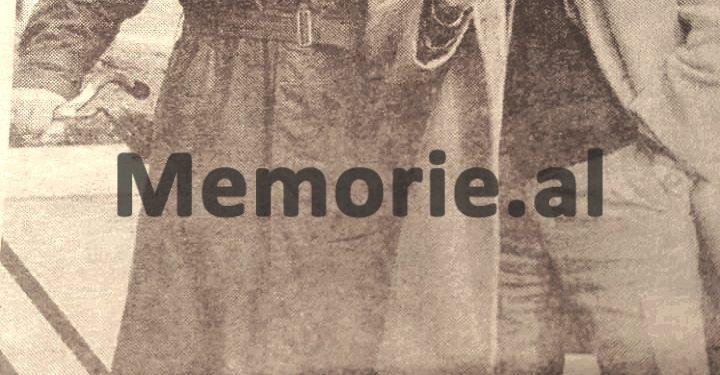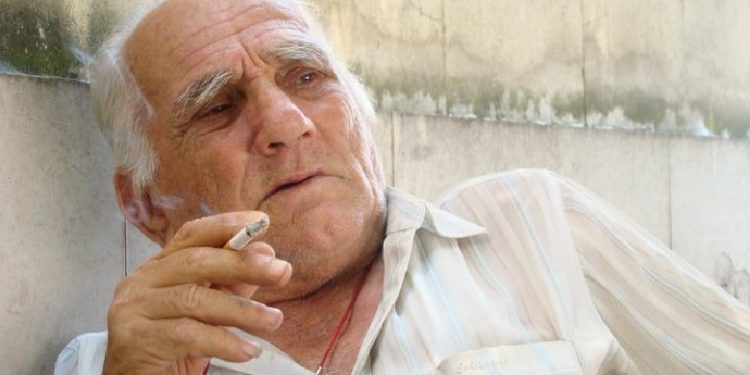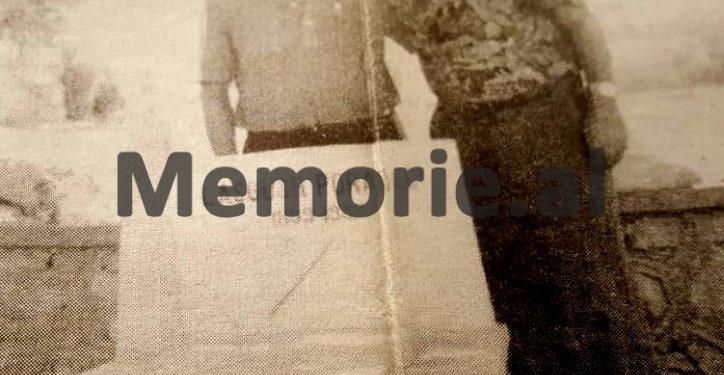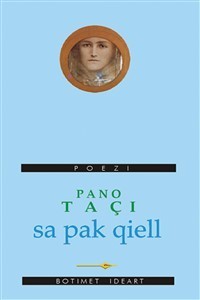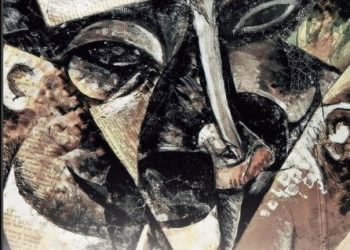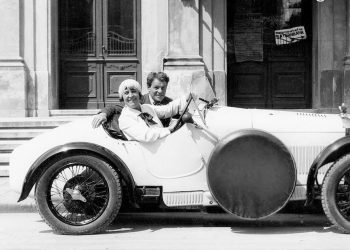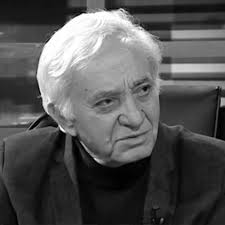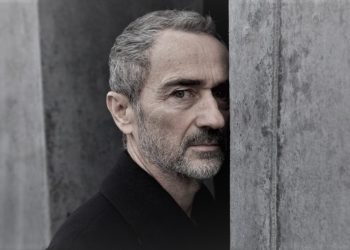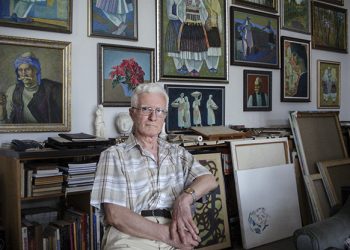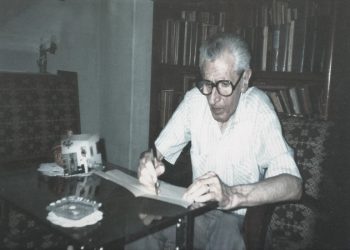Dashnor Kaloçi
Memorie.al publishes the unknown story of the famous poet Pano Taçi, who spent over two decades of his life in the prisons of the communist regime of Enver Hoxha and after the ’90s became famous for his books of erotic poetry, who mostly sang to the pain of a life full of vicissitudes and deprivations. Some of the unspoken things of his life since childhood when he was a Debatikas, the age of 12 when he met Lasgush Poradec who published the first poem, the three arrests and sentences, friends and accomplices in camps and prisons, the poem that changed the course of life, the “Naim Frashëri” award he won at the Palace of Culture “Ali Kelmendi” in Tirana, the other “award” in prison where in the “jury” were some of the most prominent personalities of Albanian art, culture, politics and literature the period of the Monarchy and after, as well as the publication of his first books after the ’90s, about which he would express: “My unconsumed youth at this past age, the worries and pains of a troubled life they are the embers where the nectar of poetry that comes out of my soul ripens and throws on paper, and where, without these disturbances in a peaceful life I would be dead ”.
While Pano Taçi’s books and volumes of poetry are already quite popular, as after the 90s he had a great fame also because of the erotic poetry he delivered successfully like no other, the story of his life is almost entirely unknown. So, in these few lines, we are trying to give some pieces from his life, which he told us years ago when together with the late Tos Baxhaku, from time to time we made friends at the bar of “Fidel”, where he spent part most of the time and we quite a bit. Leaning on the pieces of paper where he would throw verses that would later fill whole books, he stood for hours meditating, smoking with his pipe that he never took out of his mouth, and turning a glass of cognac ” Skënderbeu” with ice. From the table where he was always alone and where no one bothered him, he could move only when we told him: “Uncle Pano, Xhevo (Xhevahir Spahiu), his close friend, is looking for you, or when he went out to see the engine” Vespa “, Who sometimes parked it very close to” Fidel “and went back inside to continue his ritual. Throwing verses on pieces of paper, that when he enjoyed them, he would occasionally call us and read them to us, or rather recite them to us with the eyes that enjoyed them like a happy child….!
Panos’ childhood from Gjirokastra to Tirana
Born in the stone city of Gjirokastra in 1929, Pano Taçi would leave his family as a child to be raised by Thoma Papapano, or as he was otherwise known in his hometown, as Basho Thomai, who for many years would be the caretaker of the little Panos. In the school “Koto Hoxhi” in the city of Gjirokastra he would complete the first lessons of primary school together with two of his friends, although younger than him, Agim Shehu and Ismail Kadare. At the beginning of the Italo-Greek war in 1940, Pano Taçi was forced to leave his hometown by the repercussions he was expected to have from the Greeks as a nationalist family, where his grandfather Pano Taçi (from whom he inherited the name Pano), the nationalist priest, was their sworn enemy. With the arrival of Basho Thomai in Tirana, little Pano came, who, although he had his whole family here, he would not part with Basho, who at that time frequented the most intellectual premises of the capital. Thus, around the end of 1941, Basho Thomai together with 12-year-old Panon, went to the famous “Kursal” cafe, which at that time was frequented by many personalities of culture and politics, who were also the elite of the country. There for the first time Pano would meet Lasgush Poradec, about whom he had read through books and was amazed by his poems which Pano knew by heart and often trying to write himself like him. Along with the great Lasgushi at that table was also Eqerem Çabej and Dr. Kërçiku, who just saw Bashon Thomana invited him to the table. “Lasgushi was a very charming man and beautifully dressed in a black suit and bow tie”, Pano recalled that meeting, which in his life would be a turning point, devoting himself entirely to poetry from which he would have a life troubled and full of vicissitudes. “Lasgushi asked me to recite some of my verses,” Pano recalled, and at Çabej’s insistence, he was able to recite a poem to her, completely flushed with shame. Lasgushi would remember this poem, which was more like a riddle, and would publish it in the newspaper “Bleta”, which would be the first time that Pano Taçi would read his name in the newspaper, below his poetry.
Pano, one of the founders of “Debatik”
Upon arrival in Tirana, Pano would meet some of his peers, such as: Selman Vaqari, Musa Anadolli, Shefqet Çela, Gëzim Erebara, etc., who would be the founders of the organization “Debatiku”. Regarding this, Pano said that in 1941, around May, he and his friends removed the Italian flag from Fashio’s offices and left only the Albanian one, which he remembered was the first action of this organizate. In June 1944, Panos’ father, Koço Taçi, carried out an operation to seize the archive of the Ministry of Interior, where after being spied on, he was arrested and tortured. Frightened by this, Pano was forced to leave and became a partisan in the 23rd Assault Brigade, joining a reconnaissance team of the Brigade headquarters and in its ranks Pano would take part in all the fighting until the liberation of the city of Shkodra.
The poem that sent Panon to prison
After the end of the war, with the beginning of lessons in Tirana, Pano would not give up the poems that he loved so much. So, in school bangs he would write a poem which he dedicated to a classmate who was quite charming. The poem that Pano wrote would be denounced by the school Youth Bureau as a decadent poem and it was decided to expel him from school. Pano laughed when he remembered this incident that changed his “course” and the whole course of his life. The motivation for his expulsion was “Decadent Poetry and Bourgeois Love.” This happened because the girl to whom the poem was dedicated, was the daughter of a major military man. After being expelled from school, Pano went to his hometown, Gjirokastra, where he thought he could continue his interrupted classes and that his expulsion would not be agreed upon. But he was wrong, because the school was familiar with the measure taken against him. Annoyed, Pano tells a friend: “If they do not let me go to school, I will flee to Greece and from there to America to my grandfather, who works with Fan Noli.” But these words said with the naivete of a teenager, turned out to be fatal, as his friend quickly made a denunciation and Pano was arrested and brought to Tirana, where he was sentenced to 18 months in prison, which he suffered in Tirana. After his release from prison, he was interned in Savër, Lushnja, where at that time there were many families who had been declared “enemies” of the communist regime.
In exile he met Sejfulla Malëshova
During the period of internment, Pano met and formed close friendships with Zenel Prodan (former prefect in Zog’s time) and taking advantage of a message that Lasgushi, now Panos’s friend, had given to the chairman of the Lushnja Internal Affairs Branch, Nuçi Tira, “to take a little care of him”, using the time between the morning and dinner appeal, Pano went to Fier and met with Sejfulla Malëshova. “At that time Sejfullai continued to translate the great Russian poet Nekrasov, with the poem ‘Mother Russia'”, Pano recalled with nostalgia Lame Kodra, and some of his famous verses, such as: “Why I love Albania / For a tent in Trebeshin / For a flower on the lawn”.
Return to Tirana and prison for the second time
After finishing four years of internment in the fields of Myzeqe, Pano returns to Tirana and every afternoon he would go and meet Lasgushi at the “Flora” cafe, where he drank coffee regularly with his friends. In 1960, Pano met and married a girl of Greek origin, whose family had come from Greece in 1949 and were living in Lushnja at the time. From this marriage a son was born, whom Pano left only six months old, after he was convicted again and the boy could only see him after 27 years! After returning from exile in Tirana, Pano had a close friendship with Jorgo Bllaci and Bajram Hyseni, also well-known writers. All three were dissatisfied with the communist regime and often in the various conversations they had, they also discussed the lack of free speech, etc., the reservations they had. Meanwhile, a fourth was added to their company with a “message”, which one day denounced their attitudes, and they were arrested and all three were sentenced to 5 years in prison each. Pano served this sentence in the prison-prisons of Rubik, Laç, Fushë-Krujë and Elbasan, where at that time industrial facilities such as factories and plants were being built. In 1968 he completed his sentence and stabilized in work as an assembler in various industrial works that were being built at that time in several districts of the country.
Pano wins first prize in poetry
Although having a difficult life in camps and prisons, Pano continued his passion for writing poetry, where his sacrificial friends published it, although from time to time they had problems, as letters were sent to the newsrooms highlighting them. his biography. From that period of time, Pano recalled a competition held by the Palace of Culture “Ali Kelmendi”, in Tirana, where well-known literary participants participated and Pano won the first prize, with the poem “Ballad of the Hunter”. Also, with the help of Vath Koresh, Pano manages to publish in “Zeri i Popullit”, a cycle of poems about Kosovo, for which Koresh was criticized “for publishing the poems of a reactionary”. In 1962, Aleks Çaçi published a poem for Panos in the newspaper “Drita” entitled “Balona”, but even in this case Aleksi had problems. Panos’s close friend, Kin Dushi, whom he said was a man with a big heart and a liberal spirit, managed to publish a cycle of poems in “Ylli” magazine, but by placing only the initials and not the name of author. In July 1964, some poems were published for Panos, such as: “Comrade God”, “John”, “A grave holding two graves” (dedicated to Liri Gega, who was shot pregnant), poems which were later used by the investigator and called them “decadents who evoked calls for insurrection” and for this, Pano was convicted again.
15 years in prison, Panos’s inseparable poem “friend”
After his release from prison, in 1974, Pano voluntarily went to the Metallurgical Plant in Elbasan, “to fix his biography”, hoping that his past would be forgotten. But he would not find peace, on the contrary the situation became worse. After a month in Elbasan, Panon was arrested in front of workers accusing him of being a “worker with bourgeois looks and thoughts”, and he was sentenced to 15 years in prison. After that, out of pressure, the woman divorced him by sharing him with the court and he never saw her again. Meanwhile, while serving his sentence in prison, Pano did not stop writing poetry. He recalled that competitions were held in prisons, where in one of which he received the first prize and, in that competition, participated personalities such as: Mirash Ivanaj, Astrit Delvina, Fiqiri Llagami, Kudret Kokoshi, Fejzi Dika, Lazër Radi etc. The jury of this competition where Pano was evaluated and received the first prize, was from his accomplices, personalities from the most prominent in their time, from art, culture, politics, etc., such as: Gjergj Bubani, Mihal Zallari, Anton Frashëri, Et ‘hem Haxhiademi, Ali Cungu. The reward of this award was not only moral but also material, where Pano “won” 10 packs of cigarettes, a pack of coffee and a kg. sugar. Pano recalled that one of his friends once was Martin Camaj, also re-convicted as a participant in the Postriba uprising, who after prison could escape from Albania and made a big name in the West, as a poet, prose writer, researcher, etc.
Pano Taçi or “the gray purchase”
The whole poetic youthful spirit that Panos suppressed in prisons in his early youth seems to have returned to his old age as compensation, where he published his first book in 1994, entitled “Gray Blerim”. He published his second book in 1997, entitled “And death will pay”, about which, among others, the poet Xhevair Spahiu wrote: “Genuine poetic situation and findings, a lot of grief and a little hope: final blows love in deep old age, this is what the poet Pano Taçi announces to us with a touching simplicity, to whom, both in prison and in prison, he was deprived but could not age his rebellious spirit and almost serembian sensibility. “The loss of pain and the rhythm of the waves of a troubled life peak in the heart and make you think that man is not a lonely island, his fate is part of everyone’s fate.” In this regard, Pano himself would write: “My unconsumed youth in this past age, the worries and pains of a troubled life are the embers where the nectar of poetry that comes out of my soul and casts on paper, where, without these riots in a peaceful life I would be dead “./ Memorie.al




